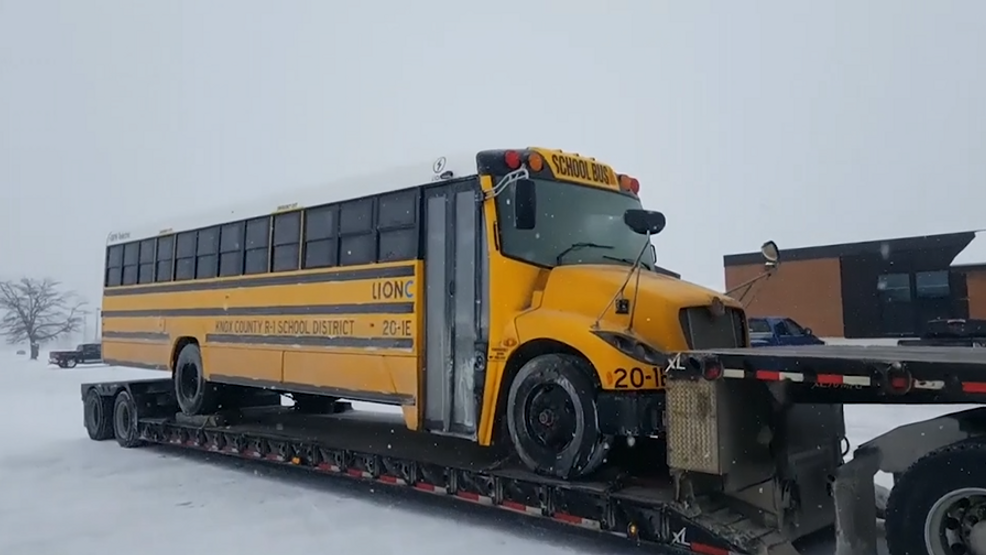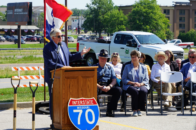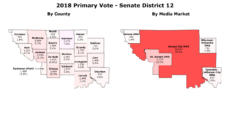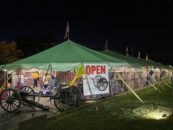As electric vehicles become more and more prominent in the U.S., the first electric school bus in the state is rolling into rural Missouri.
The bus debuted earlier this year at the Knox County R-1 School District in Edina, purchased with assistance from the Department of Natural Resources (DOR) and help from the local electric cooperative. James Owen, executive director of Renew Missouri, said the upgrade had been in the works for some time.
“It’s something the rural electric cooperatives in the northern part of the state have talked about for some time. We’ve talked to them about it and how to find opportunities to fund it,” Owen said. “Rural cooperatives and investor-owned utilities are facing similar challenges — they’re seeing less demand than they once did. The opportunity to electrify a bus or trucks or farming equipment, those are real chances for them to really sell their product and help make some of these other fuel-burning vehicles cleaner.”
Electric vehicles have been a focus of Missouri’s utility companies with charging stations and zero-emission cars popping up more and more in their service areas. Renew Missouri and utilities have long discussed the new horizon for vehicles in the state.
“It’s going to be the reality very soon, and I think if we want to talk about attracting people to come through Missouri, we’ve got to have that,” Owen said. “It benefits the utilities to be able to sell that electricity so there’s a lot of reasons to see promise with what’s going on up there.”
Missouri is seeing more electric vehicles across the state; the Kansas City Area Transportation Authority (KCATA) unveiled its first electric buses in April, while Ameren Missouri is rolling out charging stations across the Show-Me State. Owen outlined benefits to electric buses for rural schools, both financially and in terms of safety.
“With a metro bus, they run all day and all summer and you might not get the same advantage you get from a school bus. It will be less expensive to maintain and run because you’re not spending as much money on fuel or oil,” Owen said. “They could put a solar array on a bus barn or near your school district. If you were to charge the school bus using that solar power, it could act as a battery or as a storage mechanism for that power so when it’s not sunny you would still be able to use it.”
“You’re going to see costs continue to go down the more we improve that technology and the more we’re able to replicate and make more of these vehicles,” he continued. “It’s very brave to take those first steps so it’s good for the Lewis County Co-op and the Knox County School District to do that.”

Cameron Gerber studied journalism at Lincoln University. Prior to Lincoln, he earned an associate’s degree from State Fair Community College. Cameron is a native of Eldon, Missouri.
Contact Cameron at cameron@themissouritimes.com.




























